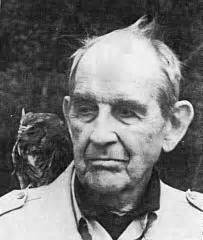A Quote by Alain de Botton
The more familiar two people become, the more the language they speak together departs from that of the ordinary, dictionary-defined discourse. Familiarity creates a new language, an in-house language of intimacy that carries reference to the story the two lovers are weaving together and that cannot be readily understood by others.
Related Quotes
Nature is a language and every new fact one learns is a new word; but it is not a language taken to pieces and dead in the dictionary, but the language put together into a most significant and universal sense. I wish to learn this language - not that I may know a new grammar, but that I may read the great book which is written in that tongue.
Rather than thinking of sound and sense in my essays as two opposing principles, two perpendicular trajectories, as they are often considered in conversations around translation, or even as two disassociated phenomena that can be brought together to collaborate with more or less success, I think of sound as sense. Sound has its own meaning, and it's one of the many non-semantic dimensions of meaning in language. I want to emphasize is the formal dynamic between language-as-information and language-as-art-material.
Religion is much more than language, but to be Christian does mean speaking Christian for most people. The language many of us use has contributed to the crisis in Christianity in North America. Traditional Christian language is becoming less familiar to millions of people. The language is frequently misunderstood by people.
Then I speak to her in a language she has never heard, I speak to her in Spanish, in the tongue of the long, crepuscular verses of Díaz Casanueva; in that language in which Joaquín Edwards preaches nationalism. My discourse is profound; I speak with eloquence and seduction; my words, more than from me, issue from the warm nights, from the many solitary nights on the Red Sea, and when the tiny dancer puts her arm around my neck, I understand that she understands. Magnificent language!
Language designers want to design the perfect language. They want to be able to say, 'My language is perfect. It can do everything.' But it's just plain impossible to design a perfect language, because there are two ways to look at a language. One way is by looking at what can be done with that language. The other is by looking at how we feel using that language-how we feel while programming.
A language possesses utility only insofar as it can construct conventional boundaries. A language of no boundaries is no language at all, and thus the mystic who tries to speak logically and formally of unity consciousness is doomed to sound very paradoxical or contradictory. The problem is that the structure of any language cannot grasp the nature of unity consciousness, any more than a fork could grasp the ocean.





































